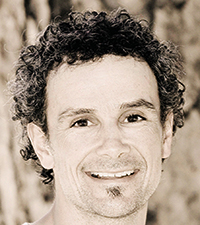

As the new director of UC Merced’s
Wawona Field Station,
Eric Berlowhas arrived at the confluence of two big dreams: Living in the Sierra Nevada and helping develop an institute where research is applied to public needs for resource management and education.
The Wawona Field Station is part of UC Merced’s Sierra Nevada Research Institute, directed by Sam Traina, which has a mission to accomplish interdisciplinary studies of the Sierra and the adjacent Central Valley. The Wawona station includes laboratory and lodging space where researchers and others can work in Yosemite National Park.
Berlow expects to begin welcoming more UC folks - faculty, staff and students - to Wawona beginning later this year.
“We can accommodate everything from field research to class outings to small workshops to art and writing retreats,” Berlow said. “We’re in a great position to help people from different fields work creatively together at the interface of research, resource management, education, outreach, art and science.”
Berlow, who began his job in February, clearly appreciates the chance to work in the mountains - and the needs that exist there.
“Yosemite is one of the great icons of a National Park,” he said. “It’s also among the most visited parks in the world, which forces us to consider our philosophies about wilderness and conservation, the relationship between humans and nature, and the role of science in resource management.”
A Ph.D. community ecologist, Berlow has studied rocky intertidal systems and mountain meadows. An upcoming publication on the cover of the journal Ecology Letters demonstrates Berlow’s success in science. He’s planning to continue similar work supported by an Alexander Von Humboldt Fellowship and to pursue collaborations with UC Merced faculty and Yosemite scientists.
UC Merced has been building relationships with national parks in the region for several years. Berlow’s appointment as the first university employee living and working in a national park affirms that commitment and opens the door for others to discover their own opportunities at Yosemite.
“I get dizzy thinking about all the potential for creative win-win-win situations among the University, the Parks, and the public,” Berlow said.






